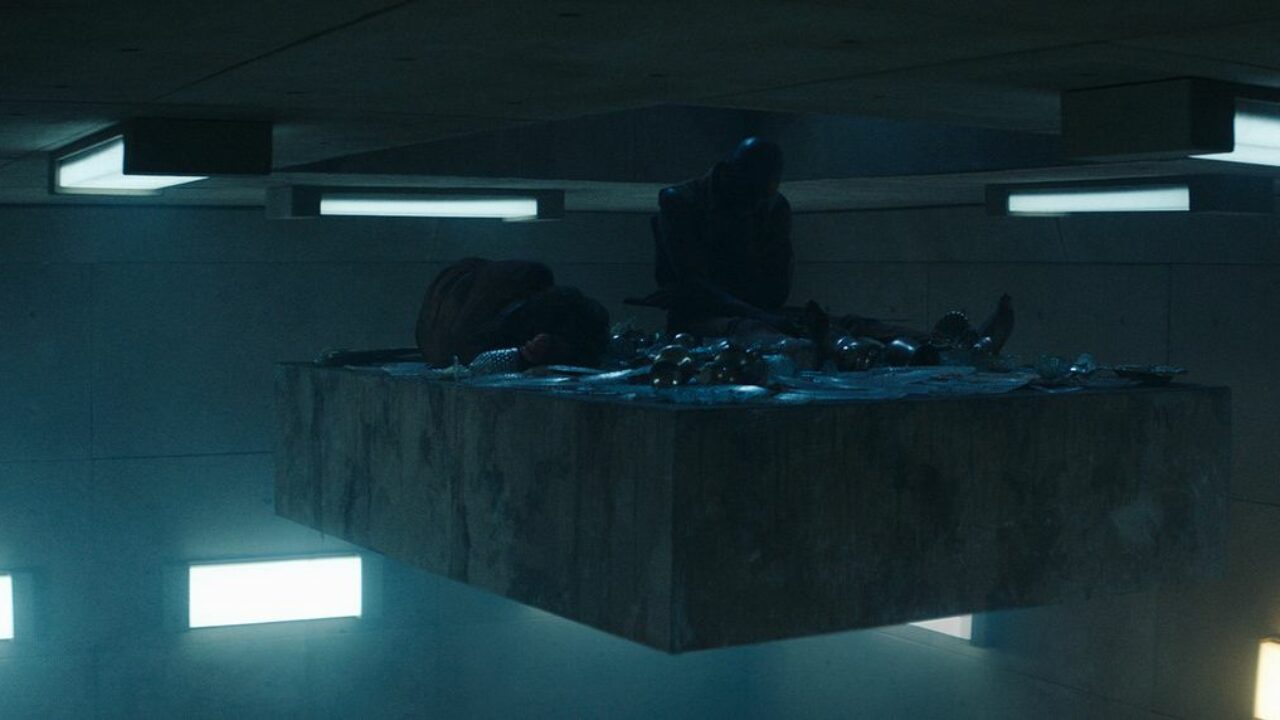‘The Platform’ review: You never know what creature deprivation may turn you into
My take away from this gripping movie is that one never knows what sort of creature deprivation may turn you into.

‘The Platform’. Picture: Netflix
The first 15 minutes of The Platform, which is streaming on Netflix, is a sign that a treat lies ahead.
This riveting, dark thriller draws you into a world that seems almost unfathomable, but makes a lot of sense. Topics that are tackled include race, gender-based violence and religion.
Spanish director Galder Gaztelu-Urrutia brings to life a story set in a futuristic prison that functions on stacked, tower-like numbered levels. There are no bars, just concrete walls in a two-person cell and a curious rectangular-shaped pit in the centre.
At an unknown hour, a table filled with food descends from above and stops at each level for a short time, allowing the occupants of the cell to eat. The table is then lowered to the next level.

Ivan Massague in ‘The Platform’. Picture: Netflix
The lead character, Goreng, played by Ivan Massague, goes into the prison believing he will emerge with a degree after having done penance.
His first cellmate, Trimagasi, played by Zorion Eguileor, who’s older and wiser, attempts to teach him that in this prison only the ruthless survive. The old man is armed with a knife and Goreng’s only armour is a book.
Goreng is kind-hearted and slightly naive and refuses to heed the old man’s warnings. He soon learns that food distribution in the prison is unequal, an apparent reflection of the injustice of the distribution of wealth in the world.
The film is a serious commentary on societal hierarchies and how humans value those they deem to be important and ill-treat those who are not.

Zorion Eguileor in ‘The Platform’. Picture: Netflix
The top levels, starting at one and going downwards, seem to represent the upper echelons of society, the middle levels represent the middle class while the lower levels are reserved for the poor and downtrodden.
By the time the table moves down past level 200, the inmates have nothing to eat and hunger and circumstance force them to start considering other options, such as eating each other.
Yes, cannibalism. This is perhaps a metaphor for how people react when deprived of basic needs, like food and water.
The movie is filled with messages about how socialism may be functional as an idea, but not in practice.

‘The Platform’. Picture: Netflix
Goreng seems to be suffering from some form of delirium when he appoints himself a mission. Along with his new cellmate, Baharat, played by Emilio Buale, they decide to visit each level and ration the food.
It becomes clear that he isn’t crazy and simply wants everyone to consume equal portions. The other inmates refuse, resulting in Goreng having to navigate all the levels violently trying to enforce these ideals.
It’s an exercise that hugely tests his morality. The dictator in him emerges and it gets brutal and violent.
It leaves the viewer questioning themselves: if you were locked away with minimal resources and no food, how far would you go? Would you eat your friends? Are we so greedy that we don’t care what the less fortunate have? Do the underprivileged commit brutal crimes out of sheer hunger?

Antonia San Juan in ‘The Platform’. Picture: Netflix
Be it an empty bank account or just the need for a slice of bread, or is it a combination of socioeconomic factors? Not forgetting how the richer feed past sell-by date scraps to people they perceive as insignificant, or just treat them as though they don’t exist.
My take away from this gripping movie is that one never knows what sort of creature deprivation may turn you into.
Info
Rating: ★★★★☆
Cast: Ivan Massague, Zorion Eguileor, Antonia San Juan, Emilio Buale
Director: Galder Gaztelu-Urrutia
For more news your way, download The Citizen’s app for iOS and Android.
For more news your way
Download our app and read this and other great stories on the move. Available for Android and iOS.









